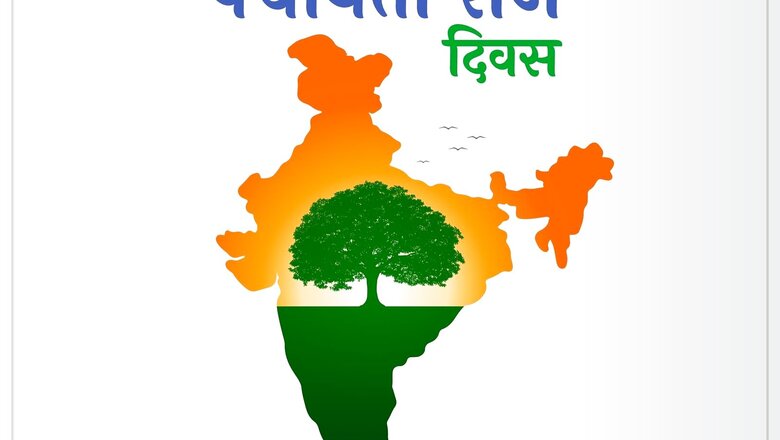
views
NATIONAL PANCHAYATI RAJ DAY 2022: In order to commemorate the day on which the political power was decentralised to grassroot levels in India, April 24 is celebrated as the National Panchayati Raj Day. This is the day when the 73rd Constitutional Amendment was passed in 1993 which paved the way for the Panchayati Raj system to be implemented.
The Panchayati Raj system was brought with an aim to empower, enable and establish accountable Panchayati Raj institutions. It is a three-tier system of Indian administration which helps decentralised political power.
A committee was formed under the chairmanship of Balwantrai Mehta in 1957 whose recommendations shaped the Panchayati Raj system which is in use today. The committee submitted its report and recommended the three-tier system. This includes the Gram Panchayat at the village level, Mandal Parishad or Panchayati Samiti at the block level, and Zila Parishad at the district level.
States Where Panchayati Raj Don’t Exist
Currently, the Panchayati Raj system has been implemented in all states and Union Territories of India except a few. These include three states namely Nagaland, Mizoram, and Meghalaya and one Union Territory namely Delhi.
Besides these states and UTs, there are also certain areas where the Panchayati Raj system has not been established. The tribal and scheduled areas in the states, the hill area of Manipur for which a district council exists and Darjeeling district of West Bengal for which Darjeeling Gorkha Hill Council exists, don’t have Panchayati Raj system.
The panchayats have been defined as ‘Institutions of self-government’ by the Constitution of India. There are a total 630 Zilla Panchayats, 6614 Panchayat Samiti, and 2,53,163 Gram Panchayats in India as of January 2019.
The objective of the system is that it will function as institutions of local government and implement schemes and prepare plans for the social justice and economic development of rural areas.
The system consists of directly elected representatives that form the Gram Panchayat and indirectly elected representatives that form the Zila Parishad.
Read all the Latest Lifestyle News here




















Comments
0 comment